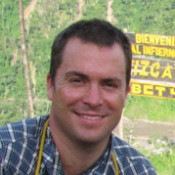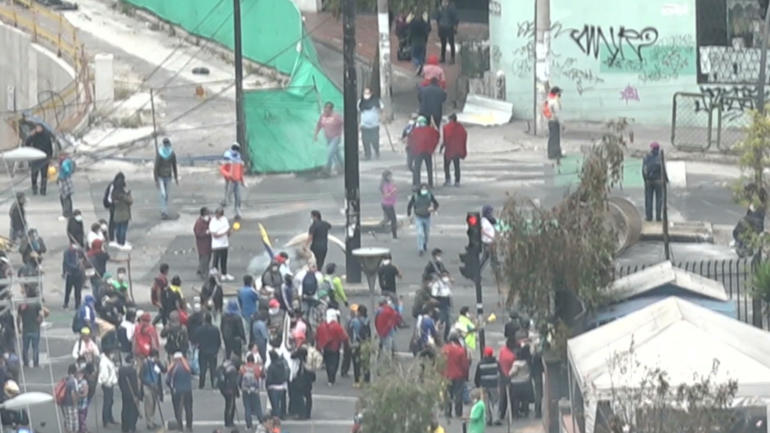At least five people have been killed since demonstrations began last week in Quito.
CGTN’s Dan Collyns has details.
Indigenous protesters are furious. After days of protests over a hike in fuel prices, the mounting number of deaths is galvanizing a backlash.
“We will not stop until we achieve our objective—the immediate lifting of this austerity decree,” Jaime Vargas, who heads up a coalition of indigenous groups said. “Right now, the government is repressing us. It’s killing us.”
Amid explosions, buckshot and tear gas, running battles between protesters and police disrupted the capital. In Quito, indigenous protesters marched on the parliament building and were repelled by riot police on the ninth day of the worst unrest that Ecuador has seen in at least a decade.
President Moreno called for direct talks with the protest leaders on Thursday, only to be told they will not negotiate until the government revokes the austerity measures. As thousands more indigenous protesters from the Amazon region arrive in the capital, the national crisis looks set to continue.
“The government has turned a deaf ear to our complaints,” protester Gustavo Tenesaca said. “It’s not trying to build bridges. It’s been nine days since we paralyzed the country and the indigenous movement will become even more radical. Right now, we could shut down the country for a month.”
Indigenous groups decry a loan deal with the IMF which removed decades-old fuel subsidies, doubling gasoline and diesel prices, but the scale of the violence, vandalism and looting in the city is unprecedented.
“The damage is enormous because Quito is a UNESCO world heritage city and its historic center is its jewel,” said Quito City Councilor Bernardo Abad. “There is damage that simply cannot be repaired to stones which are hundreds of years old, and walls, which have been defaced.”
As the crisis enters its second week, many of the capital’s residents just want peace to return.
“There are always possibilities for dialogue, but in these conditions, talks are not acceptable for Quito’s inhabitants,” said National Assembly Member Fabricio Villamar. “It wouldn’t be a fair dialogue while the city is held hostage. It would be blackmail.”
As a growing number of citizens call for peaceful talks…that possibility, for the moment, still seems remote.
 CGTN America
CGTN America

